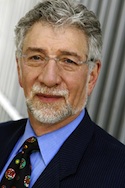
Over one in eight couples of childbearing age are infertile.
Many couples who struggle with infertility are in the position because they waited longer to have children.
But, recent data suggests that the fastest growing part of the population dealing with infertility includes women under the age of 25.
Why is that?
Many doctors believe one of the main culprits is the high number of toxic substances found in everyday living. Toxins are not only in household products, but also in your food and in the air you breathe.
Researchers have conducted numerous tests, revealing that many of these toxins act as endocrine disruptors. Known endocrine disruptors like BPA, phthalates, DDT, dioxins, PCBs, and phytoestrogens are found in most locations throughout our everyday world; from the home to the workplace.
What is astounding is that this is not just happening in the U.S., but is becoming a worldwide phenomenon.
Here's what these endocrine receptors do:
- Mimicry: They trick the body into believing they are hormones such as estrogens, androgens, testosterone and thyroid hormones, potentially resulting in over-stimulation.
- Blockage: They enter a receptor on a cell and thereby block real hormones from binding with cells. The body fails to respond properly because it's receiving bad information.
- Interference: They interfere with the way natural hormones or their receptors are made or controlled; for example, by altering metabolism in the liver.
What else do you need to know about these three ways the environment is messing with your fertility, and, what can you do about it?
Board certified in internal medicine, Stewart Lonky, MD, joins Dr. Holly to share the three ways the environment is messing with your fertility and what steps you can take to protect yourself from becoming infertile.
Transcription:
RadioMD Presents:The Dr. Holly Lucille Show | Original Air Date: May 27, 2015
Host: Holly Lucille, ND, RN
Guest: Stewart Lonky, MD
The best of both conventional and alternative medicine. It is the Dr. Holly Lucille show. Here’s Dr. Holly.
DR HOLLY: Hi folks. Welcome to the show and thank you so much for joining me. I am very excited to be here because I have a very esteemed guest. To get started off, Dr. Stewart Lonky. You can find him at doctorstewartlonky.com because you are going to want to know more information after this segment is done. He wrote a book, Invisible Killers: The Truth About Environmental Genocide. Dr. Lonky, welcome to the show.
DR LONKY: Thank you. Thank you for having me.
DR HOLLY: So, I went to an endocrinology conference a couple of weeks ago and there was a presenter that got up there and told all of us practitioners that if we were not doing more and more to understand the environment and environmental medicine per se, as it relates to our patients as they come with their clinical presentations, then we are not serving them. What would you say to that?
DR LONKY: I think that is very true.
DR HOLLY: Yeah.
DR LONKY: You know, it is very interesting because when I went to medical school there was a segment on environmental medicine, and it was really how the medical profession related to the environment of society. It was very interesting because we knew nothing about the environment at that time.
DR HOLLY: Right.
DR LONKY: On health and well-being, we didn’t even think about it.
DR HOLLY: We didn’t think about it.
DR LONKY: No. When I went to medical school, also, one of the greatest developments, if you will, for its time, was birth control pills.
DR HOLLY: Hmm.
DR LONKY: I was a third or fourth year medical student and birth control pills were coming out mostly targeting women to stop ovulation because a lot of babies were being born. We used to joke around and say if you looked at a girl funny she got pregnant. But it is a long way that we have come here in forty years to say that today the industry of assisted reproduction, we didn’t have that. There was no assisted reproduction. What has happened?
DR HOLLY: Right.
DR LONKY: And what has happened is the effect of the environment, if you will, and better living for chemistry on man and women, and so we chat a little bit about that today.
DR HOLLY: I would love to. Your book, Invisible Killers: The Truth About Environmental Genocide, I mean, I think the thing I have seen most, and, in fact, it was a huge portion of the endocrinology summit was fertility and the effects of the environment on fertility. Talk to me about that.
DR LONKY: Well, there is a significant effect. Many of the chemicals that we are surrounded by, and I'm not talking about a massive spill. I'm talking about the day to day. You drink from a plastic cup; you use foods that are packaged in cans; you have furniture which is flame retardant treated. From the time that we are very young, in fact, in utero, we are exposed to a whole new group of chemicals that really weren’t around when I was going to medical school and they were just in their beginnings.
DR HOLLY: Right.
DR LONKY: And what we’ve learned is that, for example, in women many of these chemicals are called what we call hormone or endocrine disruptive. That is that they interfere with the normal activity of in women, estrogen, and in men testosterone.
DR HOLLY: Right.
DR LONKY: And they mimic the activity by attaching to the sites on various different tissues that estrogen would act on but they are not estrogen.
DR HOLLY: Right.
DR LONKY: So, what we wind up having is either over stimulation or they attach on the human genome at a place where they affect a turn on turn off of genetics. They induce what we call epigenetic changes--changes that occur on the genome but they don't change the sequence of the gene. The long and short of it, let’s take a look at women. Menarche, when women start having their periods and thelarche, when they develop breasts, is occurring earlier and earlier than it did forty or fifty years ago. We have a situation now where we have the disruption, if you will, of the building up of the endometrium. Now, when the egg gets fertilized, it has to implant.
DR HOLLY: Yes. Well, you know, I mean I hate to interrupt, but, you know, I always tell people and I remind them that these hormones, well, whether they be mimickers I would say, I guess or our own body’s hormones or these exogenous, outside the body hormones, they do deliver messages and that message of estrogen is to do exactly that. It tells those cells to grow in periphery, is responsible for getting that endometrium all nice and plump so that, you know, so it can implant.
DR LONKY: Right and the association of these mimickers, if you will, with things like endometriosis which is where endometrium grows in places where it shouldn’t be growing, when it is not plump and ready; where it should be in the uterus, results in a significant amount of infertility. And that is what we are seeing. We are seeing women who are having these kinds of disruptive affects.
DR HOLLY: Right.
DR LONKY: If, of course, a zygote, a fertilized ovum, implants into the endometrium, then a whole new slew of endocrine responses should occur. There has to be the right amount of progesterone. There has to be the formation of what is called a corpus luteum of pregnancy to maintain that endometrium so that it doesn’t shatter at the end of the month. There is a message that has to happen.
DR HOLLY: Sure, yes.
DR LONKY: And these disruptors result in a spontaneous abortion.
DR HOLLY: Hmm.
DR LONKY: That is the fertilized egg implants, stays there for six weeks and then is shed.
DR HOLLY: Yes.
DR LONKY: We have not only the organic chemicals like BPA and phthalates…
DR HOLLY: Right, lots of research coming out on how bad those both are.
DR LONKY: Yes and those chemicals are, for example, phthalates are what make your cosmetics nice and smooth.
DR HOLLY: Yes.
DR LONKY: So, women get exposed to phthalates through their cosmetics.
DR HOLLY: Sure and it is fat soluble, right? So it passes through your skin and, of course, they can do the things…
DR LONKY: Totally.
DR HOLLY: Yes. You see, endocrine receptors they mimic, they can block, and they interfere. What are your suggestions as far as folks handling sort of the environmental onslaught when it comes to health and fertility?
DR LONKY: Well I think one of the things we have to do, you have to accept the fact that this is going on.
DR HOLLY: Yes.
DR LONKY: And I think we are talking about that. Next, you have to try and identify those chemicals that you are exposed to on a regular basis that you can begin to eliminate; that you can begin to protect yourself against. There are many websites, ewg.org, the Environmental Working Group.
DR HOLLY: Yes.
DR LONKY: A wonderful website for identifying those makeups that have phthalates; that are phthalates free…
DR HOLLY: Right.
DR LONKY: Those that have parabens that are paraben free, and I know women have this affinity for their makeup, but, I think particularly for the young women listening, those in the child-bearing age range, you really need to pay attention to this.
DR HOLLY: Yes. I talk about ewg.org, environmentalworkinggroup.org, all the time and you are right, that cosmetic database that they have, you know knowledge is power and I think that, as you say, you know I wear makeup pretty much every day and it is something that I put on my skin; the skin is the largest organ we have and certainly can absorb, you know, you use it for good or evil right?
So, what can we absorb? Well let’s absorb some things that are not so bad for us, so reducing exposure wherever we can. I think that is great. We have about sixty more seconds, so give us a couple more tips.
DR LONKY: So, prevention is very important.
DR HOLLY: Yes.
DR LONKY: And I think that it is very important for the listeners to understand that having that knowledge and for the men I want the men to know that you are not out of this picture entirely.
DR HOLLY: No.
DR LONKY: Spermatazoa, the sperm cell itself, is less effective in penetrating eggs because of the same factors, so we have a dual affect. Men and women in the child-bearing age range, take heed begin to read more about this, knowledge is power, stewartlonky.com. Very soon I am going to be having a center that is going to be really focused on this issue and it will have a website as well.
DR HOLLY: Excellent.
DR LONKY: And I think it is important to realize that prevention is much easier than getting those toxins out of your body.
DR HOLLY: Yes. Alright, Dr. Stewart Lonky, thank you so much. Prevention is the cure folks, so tune in to stewartlonky.com. This is Dr. Holly Lucille at Mindful Medicine we will be right back.





 Dr. Stewart Lonky is board certified in internal medicine, pulmonary and critical care medicine. As a National Institutes of Health postdoctoral fellow and as a full-time faculty member at the University of California, San Diego he spearheaded a research team studying the cellular and biochemical mechanisms of lung injury.
Dr. Stewart Lonky is board certified in internal medicine, pulmonary and critical care medicine. As a National Institutes of Health postdoctoral fellow and as a full-time faculty member at the University of California, San Diego he spearheaded a research team studying the cellular and biochemical mechanisms of lung injury.